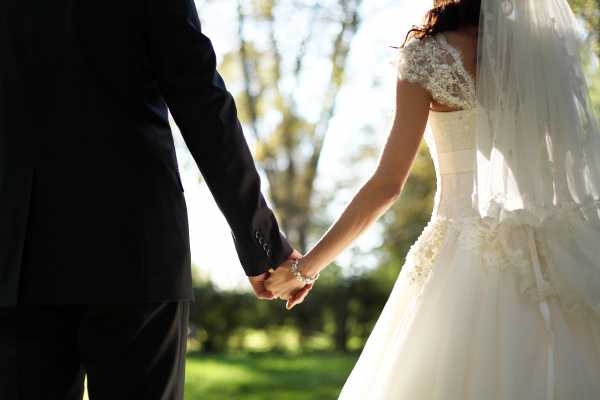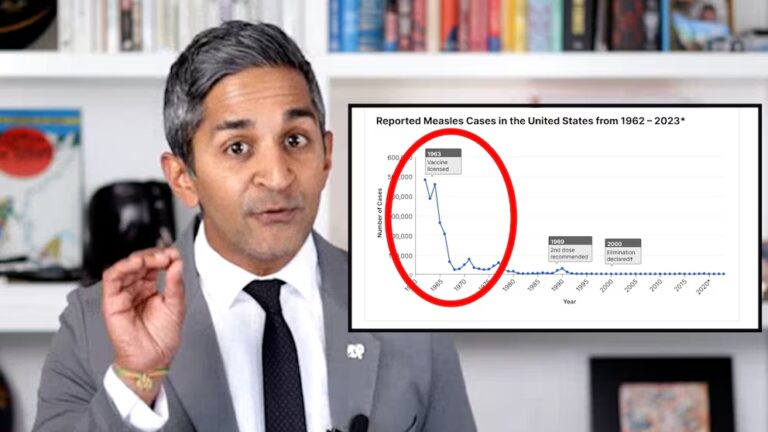
“You complete me.”
Everyone knows that line from the movie Jerry Maguire in which Tom Cruise, the vain but likable sports agent, sweeps Renée Zellweger, his quirky assistant, off her feet. It’s a pithy line, no doubt, but it always struck me as wrongheaded.
Is love really about self-completion? Is marriage about self-fulfillment?
Eli Finkel, a psychology professor at Northwestern University, has just published a book addressing these questions. Titled The All-or-Nothing Marriage: How the Best Marriages Work, the book explores why good marriages are good and why bad marriages are bad.
I sat down with Finkel to talk about what Americans tend to get wrong about marriage and, more importantly, what we can do to get better at it. A lot of it, he said, comes down to expectations.
“We’re welcome to ask as much or as little as we want from our marriage,” he told me, “but we better make sure that our expectations are calibrated to what the marriage can realistically provide.”
And what can marriages realistically provide? Well, it depends. For Finkel, it’s fine to look at marriage as a means to personal happiness, but it’s a “two-way street.” It’s about giving as much as it is getting, and forgetting that is the surest way to let your marriage fall apart.
Our conversation, lightly edited for clarity, appears below.
Sean Illing
What makes good marriages good?
Eli Finkel
That we bring significant expectations to them, and they meet those expectations.
Sean Illing
Do you think we expect too much from marriages?
Eli Finkel
I think the question of whether we’re asking too much or too little can’t be answered in isolation. If I had to answer that with a yes or no, I would say “No.” But the more accurate way of answering that question is: We’re welcome to ask as much or as little as we want from our marriage, but we better make sure that our expectations are calibrated to what the marriage can realistically provide.
Sean Illing
What can marriages realistically provide?
Eli Finkel
It depends. You and I are going to have a particular way of connecting and an array of areas where we’re compatible and incompatible, but if I were married to a different person, I would have a different array of characteristics where we’re compatible and incompatible. The idea is to learn about yourself, learn about your partner, learn about the dynamics between the two of you, and then calibrate your expectations appropriately.
Sean Illing
What makes bad marriages bad?
Eli Finkel
That we’re looking for it to do things that it can’t do for us. We want our marriage to make us feel loved, to help us become better people, to provide sexual fulfillment several times a week. And when the marriage fails to do all of these things all of the time, we become resentful, angry, and distant.
“You’re lucky to have married into an era that has the best marriages we’ve ever seen. If you want to try to achieve one of those sorts of marriages, try not to do it on the cheap.”
Sean Illing
You say that the institution of marriage has changed a lot over time, and that we’re asking less and less of it. Is that a good thing?
Eli Finkel
Well, I wouldn’t necessarily say we’re asking less of it. We’re asking less when it comes to things at the bottom of Maslow’s hierarchy of needs — basic things like security and safety. What I think we don’t really appreciate these days is that 200 years ago, people literally looked to marriage for food, clothing, and shelter. It was precarious to live if you weren’t married. We need marriage less in those ways than we did before. Our expectations are lower in those ways, but they’re higher in emotional and psychological sorts of ways.
Today, the basic needs of life aren’t enough. These days love and belonging isn’t even enough. Now we want a sense of personal growth, personal betterment, from our marriage.
Sean Illing
You mentioned Maslow there, and I’m sure you noticed David Brooks’s column in the New York Times last week where he claimed you conceive of marriage within the “Maslow frame,” meaning you think marriages exist to help each person self-actualize. Is that right?
Eli Finkel
Well, I think Brooks misunderstands what Maslow meant by the term “self-actualize.” Self-actualization doesn’t mean selfish. It means that you’re trying to build a meaningful, purposeful life. A central way through which most of us do that is to dedicate ourselves to something bigger than the self. I don’t know that there’s actually that much difference between the framework that Brooks presents and the Maslovian framework as I understand it.
A lot of people self-actualize through the subjugation of self. That’s how they do it. They try to make the world a better place. They go to impoverished parts of the world or they massage cancer patients’ feet or they look after the needy. That is a way of self-actualizing, and that’s totally consistent with Brooks’s view.
Where I disagree with Brooks is I think he’s specific about there being a set path that we should follow to achieve the highest height of happiness or whatever his language is. Whereas Maslow would say, “No, there are many ways we can achieve ultimate happiness and not all of them are self-involved, and in fact the most meaningful ones are the opposite of self-involved.
Sean Illing
I’ve always objected to this idea that the best wife or husband is the one who helps you become the best version of yourself. I think the best partner is the one who helps you transcend yourself, who draws you out of yourself. I guess that’s why I always hated that line from Jerry Maguire, “You complete me.” To me that’s narcissism, not love.
Eli Finkel
I agree! I would say that the Maslovian perspective isn’t the Jerry Maguire perspective because “you complete me” suggests that there is a void that has to be filled — that I have a void in me and that I need somebody else to fill it. I actually think that is sometimes the opposite of what I’m talking about or what Maslow might be talking about.
We have goals, we have aspirations. We’re reasonably proud of who we are, but we can think of ways that we can be better, more ambitious, more energetic, or maybe better at relaxing. We’re trying to achieve those goals, and the reality is that humans aren’t individual, isolated goal-pursuers. Our social relationships have profound influence on the extent to which we get closer to versus further from our ideal self.
The best marriages these days take that seriously. They take the responsibility for trying to help each other grow and live authentic lives to an extent that would have seemed bizarre in 1950.
“You’re welcome to ask for as much as you want of the marriage, but you need to make sure that the marriage can actually achieve those things”
Sean Illing
I like the idea of love as a practice that takes our attention away from ourselves — away from our needs, away from our petty desires, away from our impulses. I understand the egoistic accounts of love, but I think they’re describing something other than love, and hopefully something other than marriage.
Eli Finkel
I love that. Remember that the modern marriage is not just about what I get; it’s also, and more importantly, about what I give. We’re looking for a marriage to help us with our self-expression and personal growth. I believe that the majority of us have an understanding that that’s a two-way street.
Sean Illing
How much success in marriage hinges on choosing the right partner and how much of it hinges on laziness and a failure to tend to the relationship?
Eli Finkel
I don’t think anyone knows the answer. But it’s a great question. I think that science has not been very good at defining what compatible actually means. I try to do this better in the book, and I’m convinced that any relationship can be better than it is.
I try to develop evidence-based strategies in the book for making our marriages stronger. But just because any marriage can be better does not mean every marriage is a good idea or that every marriage should persist.
I do think that sometimes people get divorced and end up happier because of it, and that’s probably not very rare. Or people often get divorced and meet someone else that makes them happier. So I wouldn’t tell people to “stick it out” if they’re miserable in their marriage.
On the other hand, there’s something pretty great about building and sustaining a long-term marriage, growing old together, watching your kids have kids. I don’t have an answer to your question other than to suggest that people should work hard to try to make the marriage as strong as possible, and if there comes a point where they say, “We do nothing but work. It’s just nothing but work, and it’s not fulfilling,” then they might need to consider plan B.
Sean Illing
How do you know when a marriage has failed? When the effort required to sustain it is no longer worth it?
Eli Finkel
Dude, you’re asking great questions that are beyond the science. That is to say that nobody has dealt with this in a way that I feel comfortable with pointing you to a study.
I think a reasonably good metric is something like this: We’ve spent years really trying to make the marriage work. Both of us have tried, and we don’t seem to be able to get aligned. The issue at this point seems to be less about good will and effort, and more about a fundamental incompatibility. That is, the life you want to lead is incompatible with the life that I want to lead. That’s when I think people should seriously consider that they might be better off apart.
“The idea is to learn about yourself, learn about your partner, learn about the dynamics between the two of you, and then calibrate your expectations appropriately”
Sean Illing
So what are the tools you recommend for getting better at marriage?
Eli Finkel
I talk a lot about calibrating expectations to what the marriage can realistically provide. In some sense, it’s basically a modified supply and demand perspective. It says you’re welcome to ask for as much as you want of the marriage, but you need to make sure that the marriage can actually achieve those things. That the marriage can supply enough to meet the demand. When I say supply, I’m talking about, yes, compatibility, but also time, commitment, and effort.
There are a lot of things we can do if things aren’t going well. One approach is to invest more. I’m finding myself disappointed and frustrated, can I make the marriage meet the expectations that I’m bringing to it? Well, yes. There’s a chapter in the book that talks concretely about ways that we can do that. The science is now at a point where we can say that it’s not just about going on more dates; we can be specific about what sorts of dates are useful for what sorts of goals.
For example, if one of the things you really want to do is try to get back some passion in the marriage, then it’s not just any date that will do that. It’s dates that get you out of your routine. So, novel and exciting sorts of dates rather than just any date.
Sean Illing
If you could give one bit of advice to a newlywed or someone thinking about getting married, what would it be?
Eli Finkel
I would say congratulations. You’re lucky to be getting married in an era that has the best marriages we’ve ever seen. If you want to try to achieve one of those sorts of marriages, try not to do it on the cheap. Be attentive. The average marriage declines in happiness over time starting pretty soon after the wedding day. If you just look back and wait and see how it goes, it’s likely to get worse. John F. Kennedy, when talking about the economy, said that “The time to repair the roof is when the sun is shining.”
I would tell a newlywed who’s just getting married: Don’t wait until it’s time to seek marital therapy. Be proactive about making the relationship a bit stronger.
Sean Illing
In other words, marriage is not something you have, it’s something you do — so act accordingly.
Eli Finkel
Wow, I might steal that line from you. That’s a lovely way to say it. And it’s exactly right.
Sourse: vox.com






